[vc_row][vc_column][vc_single_image image=”949″ img_size=”full” alignment=”center”][vc_custom_heading text=”“A Piece of My Mind”” font_container=”tag:h1|font_size:50px|text_align:center|color:%232633ef” google_fonts=”font_family:Bitter%3Aregular%2Citalic%2C700|font_style:700%20bold%20regular%3A700%3Anormal”][vc_custom_heading text=”May 2021 Newsletter” font_container=”tag:h1|font_size:30px|text_align:center|color:%232633ef” google_fonts=”font_family:Bitter%3Aregular%2Citalic%2C700″][/vc_column][/vc_row][vc_row][vc_column width=”2/3″][vc_column_text]
Advancing Christian Faith and Values,
Defending Religious Liberty for All,
Supporting Civility and the Common Good
through Preaching, Teaching, Writing, Activism and Reasoned Conversations
www.donaldshoemakerministries.com[/vc_column_text][/vc_column][vc_column width=”1/3″][vc_single_image image=”1304″ img_size=”full” alignment=”center”][/vc_column][/vc_row][vc_row css=”.vc_custom_1598373738095{border-radius: 3px !important;}”][vc_column][vc_column_text]
Mother’s Day – May 9, 2021
 May your father and mother rejoice;
May your father and mother rejoice;
may she who gave you birth be joyful!
A wife of noble character who can find?
She is worth far more than rubies.
Her children arise and call her blessed;
her husband also, and he praises her.
Charm is deceptive, and beauty is fleeting;
but a woman who fears the Lord is to be praised.
[/vc_column_text][/vc_column][/vc_row][vc_row css=”.vc_custom_1598373738095{border-radius: 3px !important;}”][vc_column width=”1/4″][vc_single_image image=”1612″ img_size=”full” alignment=”center”][/vc_column][vc_column width=”1/2″][vc_column_text]
– Proverbs 23:24; 31:10, 28, 30
Back
The Badge
“Blessed are those who
maintain justice.” – Psalm 106:3
[/vc_column_text][/vc_column][vc_column width=”1/4″][vc_single_image image=”1613″ img_size=”full” alignment=”center”][/vc_column][/vc_row][vc_row css=”.vc_custom_1598373738095{border-radius: 3px !important;}”][vc_column][vc_column_text]
Peace Officers Memorial Day – May 15, 2021
For those who walk it,
the Thin Blue Line is a reflection of courage,
a pledge of brotherhood, and a tribute to the fallen,
affirming that their memory lives on.
[/vc_column_text][/vc_column][/vc_row][vc_row css=”.vc_custom_1598373738095{border-radius: 3px !important;}”][vc_column width=”1/4″][vc_single_image image=”1614″ img_size=”full” alignment=”center”][/vc_column][vc_column width=”1/2″][vc_column_text]
Brian Sicknick (EOW January 7)
William Evans (EOW April 2)
United States Capitol Police
Line of Duty Deaths so far in 2021: 109
[/vc_column_text][/vc_column][vc_column width=”1/4″][vc_single_image image=”1615″ img_size=”full” alignment=”center”][/vc_column][/vc_row][vc_row css=”.vc_custom_1598373738095{border-radius: 3px !important;}”][vc_column][vc_column_text]
Divest the Police?
I recently received an e-mailing from an activist organization. It said, “In the first 3-½ months of 2021, 260 people have been MURDERED by police in this country” including the “MURDER” of 20-year-old Daunte Wright in Brooklyn Center, Minnesota.
“We must remove police from traffic stops. We must minimize the role that police play in our daily life. This means divesting from police institutions and re imaging what our criminal legal system looks like.” [BOLD CAPS mine]
My response (edited):
I have been a member of the clergy in the Long Beach area for 51 years. I also am a police chaplain (20 years). I am horrified at the death of Daunte Wright. At this point, it appears there was a total failure on the part of Officer Kim Potter, a veteran officer experienced enough to be training others to follow proper training and precautions in the use of a Taser and to keep her firearm secured. It was a horrible and inexcusable mistake with tragic, permanent results.
At the same time, there was an active warrant for Mr. Wright’s arrest, for carrying a gun without a permit and for fleeing officers. Expired license plates give an officer reasonable suspicion to pull over a vehicle and investigate further. In this case, the suspicion was justified. Furthermore, Mr. Wright resisted arrest and attempted to flee. Had he cooperated with lawful orders, the officer’s horrible error would not have happened and Mr. Wright would still be here for his family.
You call this a murder. It was not. My observation is that this officer’s conduct was far removed from the conduct of officer Derek Chauvin in the death of George Floyd, Chauvin being found guilty of second-degree murder (and more). The charge in the case of Mr. Wright’s death is second-degree manslaughter, defined in Minnesota as causing the death of another “by the person’s culpable negligence whereby the person creates an unreasonable risk and consciously takes chances of causing death or great bodily harm to another” (609.205).
You also speak of 260 murders by police so far in 2021. Can you prove this allegation? I don’t think so. My own review of police-related deaths in January-March 2021 found instances of gun battles and of police stopping violent assaults by shooting assailants—situations not at all warranting a charge of “murder.” Because you are an attorney, your assessments must be held to a higher standard of accuracy in legal matters than those by the general public. Your comments are inflammatory.
You say, “We must remove the police from traffic stops.” Who, then, will do the stops? Unarmed civilians? Or will you do away with traffic stops? Will you proliferate cameras that the public hates? Traffic stops are important for public safety. Many stops yield more serious findings than the simple infraction for which the vehicle is stopped (which itself may be serious). I have been at many such scenes. Every traffic stop must be approached as a circumstance with elevated risk. The officer’s safety is compromised by traffic moving by, by tinted windows in many cars, by being

New Mexico State Patrolman Darian Jarrett, killed by gunfire at a traffic stop on February 4
at a positional disadvantage, and simply by not knowing who is in the car that may have malicious intent.
Together we must work to make this a safer society. It will require the efforts of all to obey the laws, to find alternatives to incarceration when appropriate, to hold self and others accountable including those in law enforcement, and recognize the need for assertive law enforcement that is fair and just but also when necessary is “God’s agent of wrath to bring punishment on the wrongdoer” (Romans 13:4).[/vc_column_text][/vc_column][/vc_row][vc_row css=”.vc_custom_1598373738095{border-radius: 3px !important;}”][vc_column][vc_column_text]Respectfully,
Donald P. Shoemaker
Still OK in the U.S. to Belittle Southerners
“Aw, they’re just a bunch of rednecks!” If “rednecks” referred to Native Americans and you said this at work or maybe even on your social media, you might find yourself out of a job.
But “rednecks” doesn’t refer to Native Americans. The term applies mostly to rural White southerners. And it’s usually derogatory (like “Bubba” *). But you can get away with it. Why? Because the last spheres of crude badmouthing have yet to be conquered. It’s still OK in America to speak derisively about southerners AND traditional Roman Catholics AND Protestant Fundamentalists and get away with it.
If you don’t know how southerners act or talk or think, these scoffers might point you to reruns of “The Dukes of Hazzard” or “The Beverly Hillbillies.”
Or tell you stories about Jimmy Carter’s brother Billy.
A very interesting column by writer Tracy Moore, who lives in Los Angeles, appeared in The Washington Post on March 17. Coming from a rural Tennessee town in Appalachia, she spoke with a southern drawl. You do a load of “warsh.” You buy “IN-sur-ance,” not “in-SUR-ance.” How old are you?
“Ahm nihhhnteen.”
Some of this dialect found its way to the Ohio countryside where I grew up.
I was a clueless store clerk when a customer asked if I had a “poke.” That’s a bag. A creek is a “crick.” Smoke goes out a “chimley.” Your pet is a “dawg.” When you’re bad, you get a “whoopin’.” “A-fixin’ to go down home” means getting ready to visit family in Kentucky. But who really talks funny—“usuns” or them? When I was in Tennessee 15+ years ago I struck up a conversation with a couple. Then I said, “I’m not from around here,” to which they replied, “Yeah, we can tell!”
Tracy Moore worked long and hard to reshape her speech. “I don’t believe for a second I’d have made it as a journalist any other way.” She observes (surely with hyperbole), “Millions of other people have dropped their Southern accent to avoid the perception of dimwittedness. Appalachian English is particularly stigmatized.”
“Recently, I nearly said, ‘That dog won’t hunt’ to shoot down a bad idea in a professional conversation, and it took everything in me to reprogram my brain to find a more acceptable phrase.” (I wonder what expression she used!)
“My efforts to de-twang paid off. Aside from a few missteps — never ask people if they ‘got their picture made’ — I could sound reasonably intelligent in Los Angeles.”
So what’s causing her now to revert to her speech roots? The coronavirus. Working away from others, she noticed herself returning to her early-life speech patterns. She explains, “To find the culprit, I asked Morgan Sonderegger, associate professor of linguistics at McGill University, and he told me that I can safely blame the coronavirus. Isolation thwarted the frequent chitchat with people of more culturally acceptable accents that made it easier for me to push the drawl down.”
This most interesting account points to my point on which groups are still stigmatized even in our “correct” America. Fundamentalists, for example, are prima facie closed-minded, bigoted, unsophisticated Bible-thumpers.
Finally, “that dog won’t hunt” is one mighty fine way of sayin’ “yer idea will flop” even if y’ain’t from her “neck of the woods.”
* In its advertising, an LA-area plumbing company depicts “Bubba” plumbers as unreliable buffoons who talk with a southern drawl. Take out “Bubba” and replace it with some other social identity and see what happens to you!
[/vc_column_text][/vc_column][/vc_row][vc_row css=”.vc_custom_1598373738095{border-radius: 3px !important;}”][vc_column][vc_column_text]
Bible Insight – A Future 7-Year Tribulation?
Daniel 9:24-27 – Few Scriptures are more cryptic, more subject to several reasonable interpretations, or viewed with more prophetical dogmatism than this one!
24 “Seventy ‘sevens’ are decreed for your people and your holy city to finish transgression, to put an end to sin, to atone for wickedness, to bring in everlasting righteousness, to seal up vision and prophecy and to anoint the Most Holy Place.
25 “Know and understand this: From the time the word goes out to restore and rebuild Jerusalem until the Anointed One, the ruler, comes, there will be seven ‘sevens,’ and sixty-two ‘sevens.’ It will be rebuilt with streets and a trench, but in times of trouble.
26 After the sixty-two ‘sevens,’ the Anointed One will be put to death and will have nothing. The people of the ruler who will come will destroy the city and the sanctuary. The end will come like a flood: War will continue until the end, and desolations have been decreed.
27 He will confirm a covenant with many for one ‘seven.’ In the middle of the ‘seven’ he will put an end to sacrifice and offering. And at the temple he will set up an abomination that causes desolation, until the end that is decreed is poured out on him.”
– Daniel 9:24-27 New International Version
Without being encouraged to wrestle with other interpretations, I was taught that this scripture was a key that unlocks the “last days.” Verse 27, I learned, speaks of the Antichrist [“He”] who makes a 7-year “covenant” with the Jewish people [“many”] but breaks it half way through and imposes an “abomination” on the rebuilt Temple in Jerusalem. This interpretation yields the notion of a terrible “7-year Tribulation” just before Jesus returns.
Today I’m much more cautious about interpretations. The Bible is “inspired by God”; its interpretations are not. What are the interpretive options?
My former colleague at Biola University, Dr. Ron Pierce, does an excellent job of laying out the options in his commentary on Daniel (Baker Books, 2015, pp. 164-65). Before laying out the options, he gives two important cautions:
(1) “…the New Testament nowhere appeals to this passage to confirm the time of Jesus’ coming…” (p. 162)
(2) “…the consensus in biblical scholarship regarding the difficulty of this text should evoke a sincere posture of humility in the way we write and speak.” (p. 163)
Messianic Interpretations [The NIV Bible capitalizes “Anointed One”]
• Traditional: The final “week’ of the “70 weeks” (of years) was fulfilled during the earthly ministry of Jesus and the destruction of Jerusalem.
• Typological: The final “week” is the tribulation under “antichrist” at the end times just before Jesus returns.
• Dispensational [the view I was taught]: As with “typological,” the last “week” is disconnected from the first 69 weeks of years and placed in the “eschatological future.” Israel will face the tribulation; the church will be raptured prior to it.
Antiochene Interpretation
• The first “69 weeks” include the “times of trouble” for Judea under Persia and Greece (6th to 2nd century BC). “The last ‘seven’ represents Judea’s persecution under Antiochus IV (171-164 BC), the ‘ruler who is to come.’ This last ‘seven’ finds its midpoint in Antiochus’s desecration of the temple (167 BC) and ends with its rededication (164 BC).”
Dr. Pierce sums up the options in these words:
In sum, the widely divergent messianic views agree on their Christological understanding of this passage but are deeply divided regarding the combination of events that connect the sixty-nine “sevens” to Jesus the Messiah. In contrast, the Antiochene view is a nonchristological—although much more unified—reading of these verses, primarily in their literary and historical contexts.
The lack of consensus among Christian interpreters through the centuries should give us pause before we make ONE interpretation THE interpretation. Unless we believe that our perspective “in the last days” gives us box seats to watch biblical prophecies unfold before us (an attitude almost cultic), we need to heed the author’s call for humility in our interpretations and not make our own view a test of orthodoxy—what can and can’t be taught in our churches.
Two newsletter pages can’t discuss this debate thoroughly. But I’ve given enough to remind us not to be dogmatic when examining sections of scripture that are very cryptic (at least to the non-contemporary reader). This is the ONLY scripture in the whole Bible that supports, according to ONE interpretation, the notion of a SEVEN-YEAR TRIBULATION in the last days.
For me, that’s not enough for holding that notion dogmatically.
[/vc_column_text][/vc_column][/vc_row][vc_row][vc_column][vc_column_text]
Religious Liberty Vigilance – Lifting Restrictions!
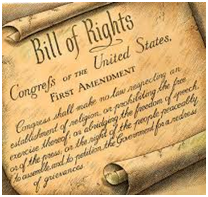 “I consider the government of the United States as interdicted by the Constitution from inter meddling with religious institutions, their doctrines, discipline, or exercises.”
“I consider the government of the United States as interdicted by the Constitution from inter meddling with religious institutions, their doctrines, discipline, or exercises.”
– Thomas Jefferson to Samuel Miller, 1808
The Corona Pandemic has produced challenges to religious liberty:
(1) Limitations on the “free exercise of religion” (in the forms of gathering together, singing, partaking of Communion for examples).>
(2) Limitations or prohibitions against pastoral services, such as for the hospitalized or for funerals.>
Most people of faith, including Christians I know, want to be supportive of the state as it performs its legitimate “police power” of protecting public health.
It is one way to “love your neighbor as yourself,” as Jesus taught us.
But many laypeople and ministers have been concerned over excessive, burdensome or unequal limitations on religious expression. Consider NYC Mayor Bill de Blasio’s condemnation of a Jewish funeral procession and celebration of “racial justice” protestors (my July 2020 Newsletter). (I support the right of BOTH worshippers and protestors to gather peacefully.)
But there is more than light at the end of the tunnel! The sun is shining!
1. A string of U.S. Supreme Court summary decisions have scaled back government restrictions against worship gatherings.
On April 15, the State of California issued this statement: “In response to recent judicial rulings, effective immediately, location and capacity limits on places of worship are not mandatory but are strongly recommended.”
This is a major improvement over discriminatory rules that placed religious gatherings under greater restrictions than the restrictions on similar secular gatherings.
2. There is growing recognition that the failure at many levels of government to recognize the “essential” role of religion during the coronavirus crisis was unwise and detrimental, if not illegal.
Government is unqualified to say religion is non-essential. To the contrary, the U.S. Supreme Court ruled that religion preforms many beneficial services within society (Walz v. Tax Commission of the City of New York, 1970).
Robert Garcia, Mayor of Long Beach California, said in an email to me, “Donald, I absolutely agree that faith base organizations and community organizations are a vital part of our community.”
The “Religion Is Essential Act” (SB 397) is now before California’s State Senate. It provides as follows (8663.1), (a) and (b) are the key points:
(a) (1) During a state of emergency, the Governor shall deem religious services to be an essential service and to be necessary and vital to the health and welfare of the public.
(2) During a local emergency, the governing body of the city or county or the official designated pursuant to Section 8630 shall deem religious services to be an essential service and to be necessary and vital to the health and welfare of the public.
(b) During a state of emergency or a local emergency, the state and local governments shall not take a discriminatory action against a religious organization and shall permit a religious organization to continue operating and engaging in religious services to the same or greater extent that other organizations or businesses that provide essential services that are necessary and vital to the health and welfare of the public are permitted to operate.
(c) The state and local governments shall not enforce any health, safety, or occupancy requirement that imposes a substantial burden on a religious service unless the state or local government demonstrates that applying the burden to the religious service is essential to further a compelling governmental interest and is the least restrictive means of furthering that compelling governmental interest.
(d) Except as provided by subdivision (c), this section does not prohibit the state or local governments from requiring religious organizations to comply with health, safety, or occupancy requirements issued by the state or federal government that are applicable to all organizations and businesses that provide essential services.
The “Religion Is Essential Act” is good legislation and deserves support by the citizens of California.
What Is “The Golden Rule” for Social Media?
“Tweet others as you would have others tweet you!”
Many Bible proverbs stress the importance of wholesome words. This advice is most important today because of the special dangers in (un)social media. Take these proverbs to heart. Weigh your words carefully before you “send”!
He who spreads slander is a fool. – Proverbs 10:18
When words are many, transgression is not lacking. – Proverbs 10:19
A gossip betrays a confidence, but a trustworthy person keeps a secret. – Proverbs 11:13
A gentle answer turns away wrath, but a harsh word stirs up anger. – Proverbs 15:1
The soothing tongue is a tree of life, but a perverse tongue crushes the spirit. – Proverbs 15:4
The Lord detests the thoughts of the wicked, but gracious words are pure in his sight.
– Proverbs 15:26
Pleasant words are a honeycomb, sweet to the soul and healing to the bones.
– Proverbs 16:24
A gossip separates close friends. – Proverbs 16:28
A gossip betrays a confidence; so avoid anyone who talks too much. – Proverbs 20:19[/vc_column_text][/vc_column][/vc_row][vc_row][vc_column][vc_column_text]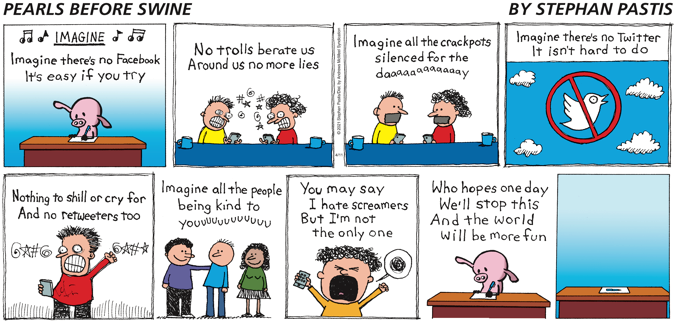
PEARLS BEFORE SWINE © 2021 Stephan Pastis. Reprinted by permission of
ANDREWS MCMEEL SYNDICATION. All rights reserved.[/vc_column_text][/vc_column][/vc_row][vc_row css=”.vc_custom_1598373738095{border-radius: 3px !important;}”][vc_column][vc_column_text]
Good Words from Others…
Radical Cultural Marxism in our Educational Systems
“I think our universities and K-12 educational systems have become indoctrination centers for radical cultural Marxists. They are national security threats for what they have done. They [regard] reason and logic—the very means we have used to adjudicate between truth claims—as the creation of white supremacist imperialist white men. So when you take the very means that we used to arbitrate among disputants as the constructs of racists, what you have done is criminalize thought and you have disarmed individuals from thinking. You have taken feelings as the means of arbitrating among disputes. So you can get fired if you dispute the feelings of someone because feelings are the way I assert and reinforce my identity.”
 —Jason D. Hill, Professor of Philosophy at DePaul University. Dr. Hill emigrated from Jamaica in 1985 and became an American citizen. He is the author of What Do White Americans Owe Black People (Racial Justice in the age of post-oppression) and Civil Disobedience and the Politics of Identity.
—Jason D. Hill, Professor of Philosophy at DePaul University. Dr. Hill emigrated from Jamaica in 1985 and became an American citizen. He is the author of What Do White Americans Owe Black People (Racial Justice in the age of post-oppression) and Civil Disobedience and the Politics of Identity.
Counterfeit Christs
“In the many counterfeits of Christ through the centuries the dead giveaway of a false Savior is a smooth skin unburdened by the wounds of [the Cross].
“Counterfeit Christianity always delights in showing the heart of Christ, but not His pierced heart. From that seemingly harmless symbolism tumbles the inverted creed of Counterfeit Christianity. It centers not on sacrificial love but on sentimental luv…”
![]() — From “Resisting a Counterfeit Easter” by Fr. John A. Perricone
— From “Resisting a Counterfeit Easter” by Fr. John A. Perricone
www.donaldshoemakerministries.com
Contact me at: donaldshoemakerministries@verizon.net
Don has been a member of the clergy in the Long Beach CA area since 1970. He serves currently as Pastor Emeritus of Grace Community Church of Seal Beach (where he was senior pastor 1984-2012) and as Senior Chaplain of the Seal Beach Police Department (2000+). He previously was a professor of Biblical Studies at Biola University and chaired the Social Concerns Committee in the Fellowship of Grace Brethren Churches from 1985 to 2019. His graduate work includes a master’s degree in theology from Fuller Theological Seminary with a concentration in Christian ethics. He and his wife Mary have been married for 55 years. They have two children and six grandchildren.[/vc_column_text][/vc_column][/vc_row]


 Our Easter Hope – Resurrection to New Life
Our Easter Hope – Resurrection to New Life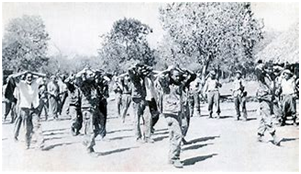 Victory was not to be. Within three days the invaders were defeated and most were captured. Kennedy had cancelled plans for air cover, dooming the operation.
Victory was not to be. Within three days the invaders were defeated and most were captured. Kennedy had cancelled plans for air cover, dooming the operation.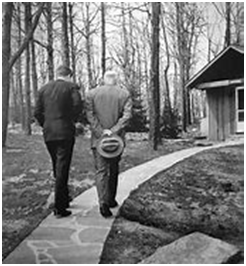 Kennedy took full responsibility for the failure. Especially poignant, two days after the collapse of the invasion Kennedy invited Dwight Eisenhower to Camp David to get, as Kennedy later told the press, “the benefit of his thoughts and experience.”
Kennedy took full responsibility for the failure. Especially poignant, two days after the collapse of the invasion Kennedy invited Dwight Eisenhower to Camp David to get, as Kennedy later told the press, “the benefit of his thoughts and experience.”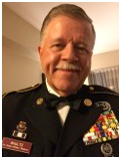 Why the Spike in Crime?
Why the Spike in Crime?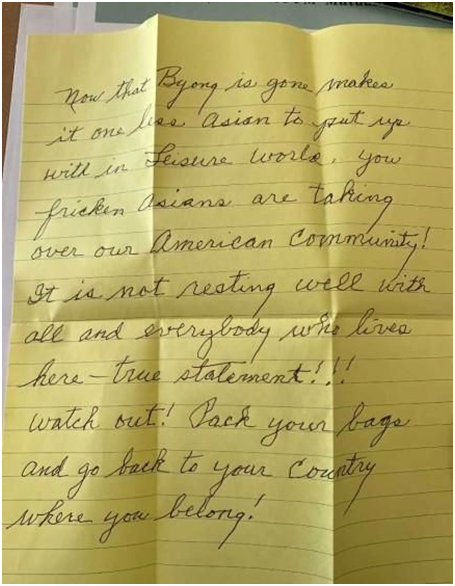 The community has come together in reaffirming this resident’s right to live in
The community has come together in reaffirming this resident’s right to live in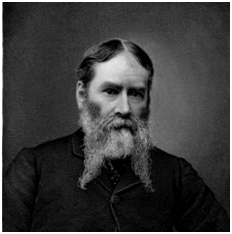
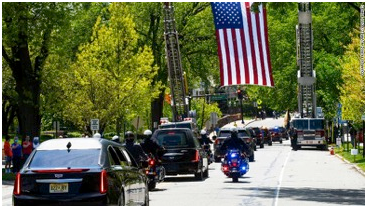 Back The Badge
Back The Badge Captain Jonathan Parnell of the Detroit Police Department was the first to die of COVID on March 24. The last, on December 31, was Officer Troy Adkins, U.S. Department of Homeland Security – Customs and Border Protection. In between, 208 LODD were from COVID-19. A distant second was gunfire (50), followed by automobile crashes (20) and vehicular assault (13). *
Captain Jonathan Parnell of the Detroit Police Department was the first to die of COVID on March 24. The last, on December 31, was Officer Troy Adkins, U.S. Department of Homeland Security – Customs and Border Protection. In between, 208 LODD were from COVID-19. A distant second was gunfire (50), followed by automobile crashes (20) and vehicular assault (13). *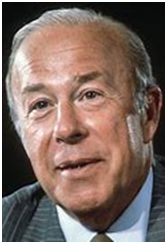 George Shultz, who died February 6 at the age of 100, was secretary of state to President Reagan, among other roles. He was most instrumental in ending the Cold War.
George Shultz, who died February 6 at the age of 100, was secretary of state to President Reagan, among other roles. He was most instrumental in ending the Cold War.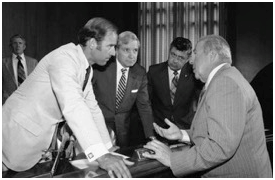 eliminate these weapons in order to preserve a sane and peaceful world. We pray for your help as we work toward this goal.”
eliminate these weapons in order to preserve a sane and peaceful world. We pray for your help as we work toward this goal.”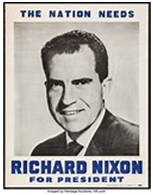 Richard Nixon and the Election of 1960
Richard Nixon and the Election of 1960 I’m also impressed with how Daniel earned the right to be heard, even to be able to tell a proud and ruthless king what he didn’t want to hear. After Daniel told the king the dream’s warning of his impending insanity, Daniel held out a word of hope: “Therefore, O king, be pleased to accept my advice: Renounce your sins by doing what is right, and your wickedness by being kind to the oppressed. It may be that then your prosperity will continue” (4:27).
I’m also impressed with how Daniel earned the right to be heard, even to be able to tell a proud and ruthless king what he didn’t want to hear. After Daniel told the king the dream’s warning of his impending insanity, Daniel held out a word of hope: “Therefore, O king, be pleased to accept my advice: Renounce your sins by doing what is right, and your wickedness by being kind to the oppressed. It may be that then your prosperity will continue” (4:27).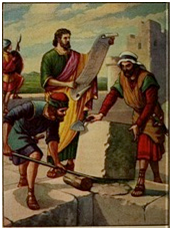 Nehemiah was greatly distressed when he heard that the walls of far-away Jerusalem lay in ruins—the place that was once King David’s royal city. This was around 444 BC, a century after the end of the Babylonian Captivity. With permission and provisions from the king, Nehemiah travelled to Jerusalem, rebuilt the walls, restored a sense of community in the city, protected the people from surrounding enemies, and revitalized worship and obedience to God.
Nehemiah was greatly distressed when he heard that the walls of far-away Jerusalem lay in ruins—the place that was once King David’s royal city. This was around 444 BC, a century after the end of the Babylonian Captivity. With permission and provisions from the king, Nehemiah travelled to Jerusalem, rebuilt the walls, restored a sense of community in the city, protected the people from surrounding enemies, and revitalized worship and obedience to God.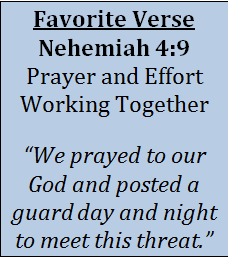 Moreover, Nehemiah did not eat the food allotted to him as governor, thus relieving the tax burden placed on the people by earlier governors. “Out of reverence for God I did not act like that” (5:15). What Nehemiah did do was to invite people to eat at his table—150 of them at a time! And eat well they did—oxen, sheep and poultry with an abundant supply of wine. But Nehemiah refused to tax the people for his culinary enjoyments.
Moreover, Nehemiah did not eat the food allotted to him as governor, thus relieving the tax burden placed on the people by earlier governors. “Out of reverence for God I did not act like that” (5:15). What Nehemiah did do was to invite people to eat at his table—150 of them at a time! And eat well they did—oxen, sheep and poultry with an abundant supply of wine. But Nehemiah refused to tax the people for his culinary enjoyments.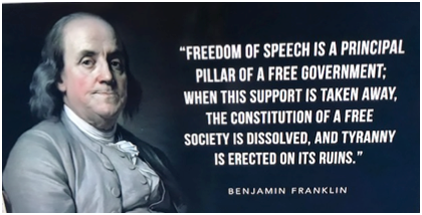 The freedoms of religion, speech, the press, peaceful assembly and petition of government are all guaranteed in the First Amendment. I see these freedoms standing or falling together.
The freedoms of religion, speech, the press, peaceful assembly and petition of government are all guaranteed in the First Amendment. I see these freedoms standing or falling together.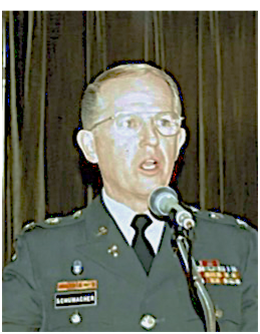 “A Soldier of God” –
“A Soldier of God” –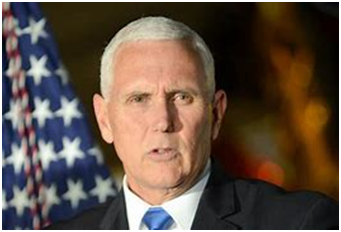 A Man of Honor and Courage
A Man of Honor and Courage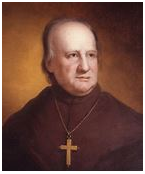 A Timely Prayer for our Country—
A Timely Prayer for our Country— When we moved to California in 1970 and bought a home, we noticed the previous owner left behind an old copy of LIFE magazine—from 1965—titled “Drama of Life Before Birth.” For you younger ones, LIFE magazine was probably the premier periodical of that day. That issue of LIFE would change the focus of my ministry!
When we moved to California in 1970 and bought a home, we noticed the previous owner left behind an old copy of LIFE magazine—from 1965—titled “Drama of Life Before Birth.” For you younger ones, LIFE magazine was probably the premier periodical of that day. That issue of LIFE would change the focus of my ministry! Good News from Grace
Good News from Grace I continue to marvel at the loyalty of these people as evidenced by their giving in the midst of this time of economic, social and medical difficulty:
I continue to marvel at the loyalty of these people as evidenced by their giving in the midst of this time of economic, social and medical difficulty: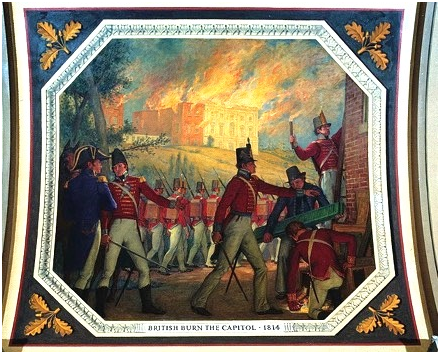 Losing “The Peoples’ Capitol”
Losing “The Peoples’ Capitol”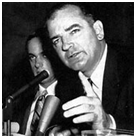 Beware “The New McCarthyism”
Beware “The New McCarthyism” “Mobocracy” is authoritarian, unchristian, and contrary to American ideals, whether it is by leftist extremists or right-wing extremists.
“Mobocracy” is authoritarian, unchristian, and contrary to American ideals, whether it is by leftist extremists or right-wing extremists.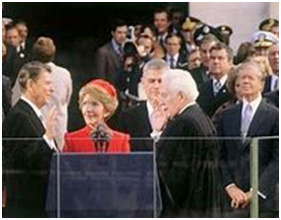
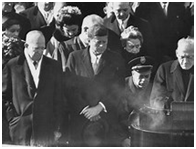 While Cardinal Cushing was giving the invocation the podium began to smoke. My grandmother was living with us at the time, and her choice words were, “Holy smoke!” The good cardinal’s prayer was so long that California Gov. Pat Brown leaned over to another and said, “If he doesn’t quit now, I’m leaving the church!”[/vc_column_text][/vc_column][/vc_row][vc_row css=”.vc_custom_1598373738095{border-radius: 3px !important;}”][vc_column width=”1/4″][vc_single_image image=”1542″ img_size=”full” alignment=”center”][/vc_column][vc_column width=”1/2″][vc_column_text]The day featured 22-degree temperature, 8 inches of snow, and bright sunlight. Poet Robert Frost couldn’t read his poem in the bright sun, so his text was shaded by Lyndon Johnson’s hat. Speaking of hats, JFK and others wore high hats to the distinguished occasion.[/vc_column_text][/vc_column][vc_column width=”1/4″][vc_single_image image=”1543″ img_size=”full” alignment=”center”][/vc_column][/vc_row][vc_row css=”.vc_custom_1598373738095{border-radius: 3px !important;}”][vc_column width=”1/4″][vc_single_image image=”1544″ img_size=”full” alignment=”center”][/vc_column][vc_column width=”1/2″][vc_column_text]Things seemed more amicable and civil than today. President Eisenhower is comfortable between the President-elect and his wife. Defeated presidential candidate and Vice President Richard Nixon observes at the far right.[/vc_column_text][/vc_column][vc_column width=”1/4″][vc_single_image image=”1545″ img_size=”full” alignment=”center”][/vc_column][/vc_row][vc_row css=”.vc_custom_1598373738095{border-radius: 3px !important;}”][vc_column][vc_column_text]
While Cardinal Cushing was giving the invocation the podium began to smoke. My grandmother was living with us at the time, and her choice words were, “Holy smoke!” The good cardinal’s prayer was so long that California Gov. Pat Brown leaned over to another and said, “If he doesn’t quit now, I’m leaving the church!”[/vc_column_text][/vc_column][/vc_row][vc_row css=”.vc_custom_1598373738095{border-radius: 3px !important;}”][vc_column width=”1/4″][vc_single_image image=”1542″ img_size=”full” alignment=”center”][/vc_column][vc_column width=”1/2″][vc_column_text]The day featured 22-degree temperature, 8 inches of snow, and bright sunlight. Poet Robert Frost couldn’t read his poem in the bright sun, so his text was shaded by Lyndon Johnson’s hat. Speaking of hats, JFK and others wore high hats to the distinguished occasion.[/vc_column_text][/vc_column][vc_column width=”1/4″][vc_single_image image=”1543″ img_size=”full” alignment=”center”][/vc_column][/vc_row][vc_row css=”.vc_custom_1598373738095{border-radius: 3px !important;}”][vc_column width=”1/4″][vc_single_image image=”1544″ img_size=”full” alignment=”center”][/vc_column][vc_column width=”1/2″][vc_column_text]Things seemed more amicable and civil than today. President Eisenhower is comfortable between the President-elect and his wife. Defeated presidential candidate and Vice President Richard Nixon observes at the far right.[/vc_column_text][/vc_column][vc_column width=”1/4″][vc_single_image image=”1545″ img_size=”full” alignment=”center”][/vc_column][/vc_row][vc_row css=”.vc_custom_1598373738095{border-radius: 3px !important;}”][vc_column][vc_column_text]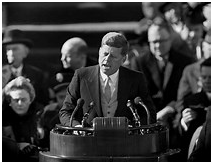 President Kennedy’s brief inaugural speech was a classic, to be long remembered. You may know “Ask not what your country can do for you…” and “We shall pay any price, bear any burden…” Also very important:
President Kennedy’s brief inaugural speech was a classic, to be long remembered. You may know “Ask not what your country can do for you…” and “We shall pay any price, bear any burden…” Also very important: These things I remember, as I pour out my soul:
These things I remember, as I pour out my soul: John is a colleague of mine in Christian Ministry. He is a careful thinker whose mind often “colors outside the lines.” Here are excellent thoughts from one who (like me) lived in the 1950’s and 60’s and often viewed the world through that lens.
John is a colleague of mine in Christian Ministry. He is a careful thinker whose mind often “colors outside the lines.” Here are excellent thoughts from one who (like me) lived in the 1950’s and 60’s and often viewed the world through that lens. –Picture from The Wall Street Journal, December 18, 2020
–Picture from The Wall Street Journal, December 18, 2020